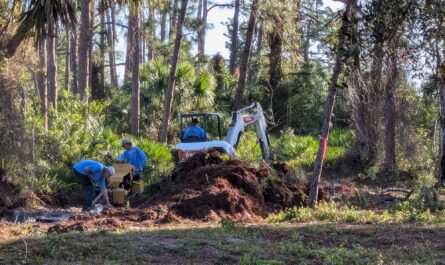Have you ever wondered what it takes to achieve financial independence? My wife and I have been on this journey for a while now, and I'm excited to share our story with you. It's not about magic tricks or market timing—it's about consistency, smart allocation, and staying the course even when the market gets rocky. The Power of Tracking Your Net Worth Back in 2014, I created a simple spreadsheet to track our net worth. Little did I know how powerful this tool would become in shaping our financial future. By consistently updating our numbers each month, we gained incredible insights into our progress. For example, from October 2016 to February 2017, our net worth shot up by 14% in just four months! These kinds of increases can see
José
José concluded his distinguished 13-year career at Vanguard at age 44, stepping away from corporate life to embrace an early retirement. As a project manager, he expertly orchestrated the creation and delivery of educational materials—both digital and print—for 401(k) participants, ensuring resources reached millions of investors. Today, he embraces life's simpler pleasures: quality time with family, pursuit of passion projects, discovery of new adventures, and leisurely meals in his garden oasis.
View all posts by José →





Hey thats a good return on net worth. If you focus, reinvest, and save a big portion of income FI is just around the corner. Why are you willing to sell a profitable rental in retirement? As the cash flow will help you not tap into the principle of your investments.
Yeah, that rental property has proven to be a hell of a good investment after all. I initially purchased it for $70k and invested about another $17K to turn it into a 2-apartment house and get a gross income of $1,350 a month.
One issue is that we’d need to get a reliable property manager and I’m not sure I want to deal with that headache after moving much further away. But it is a nice cash flow, we’ll revisit it next year and see if we want to give it a try with a property manager. Maybe we try a property manager while we’re here to see if it works out. I just don’t have faith in finding reliable people in the area. Good point!
I was horrified by the half a mill net worth that couple has. It would give me a heart attack for sure. It just validates my theory that you should always do a cost benefit analysis on everything you do or buy even if it means education. Congrats on increasing your “nest egg” steadily, diversifying your investments and readjusting your allocation based on your needs. We have a little more agressive portfolio than you for our retirement accounts with less than 5% in bonds because our 401ks may not even be touched during retirement. We plan to fund it with a combination of pension ( old school) , savings, dividends on non- retirement accounts and income from rental property. Of course, we also plan on living in a lower cost country for a couple years right away, letting our “nest egg” grow even more before needing to touch it. I estimate we would actually be able to save more than we do now in the first two years of retirement just by moving to a cheaper country. Isn’t that crazy?
Hi Jana –
Thanks! Since we reached our numbers much earlier than expected and are still predicting to work until 2019 we’re going to end up with a bigger portfolio so the bond allocation is really the extra money that is accumulating. (there are days like today when I do lose corporate patience and rethink this) That amount is about 6 years of basic living expenses. We’ve been investing part of it in a high-yield corporate bond fund so it’s providing a nice monthly income.
Living in a place with a lower cost of living definitely makes a big difference. That’s a great idea to let your investments grow while you travel. That’s one of the reasons why we plan to move after we retire. We can live like kings on a lower budget without decreasing the quality of life elsewhere. Thanks for stopping by!
Thanks Julie!
That’s the right mindset – adjust your investments according to your plans and not just because of market swings.
Good luck on selling your house! Not sure how the real estate market looks in your area but it’s looking better in PA than last year. Hope it’s the same for you. Thanks for stopping by.
I love your worry-free approach to managing your net worth and congrats on the crazy year-over-year increases. We’re still on the road to FI but we have a similar philosophy to you. We’ve switched more to cash recently but not because of the market – because we want a cash buffer as we prepare to sell our house.
Wow, congrats! Especially 2015 was a tough year with essentially flat equity returns. Our net worth growth has definitely slowed down in 2014/15/16, compared to 2011/12/13! Well, even in a flat year we’d get growth from additional savings, but it’s getting a smaller and smaller percentage once the portfolio grows.
Also totally agree with the “don’t time the market” attitude. It’s best to keep making the regular contributions, rain or shine. Some of my best investments were the ones I made when everybody else panicked and sold. 🙂
Good luck in 2017!
Thanks! I think we reached our peak percentage growth per year in 2015. We’re approaching your stage of 2014 where our salaries won’t move the dial as much. With a 7% return on our investments, we estimate our net worth to grow by another 25% this year from last year. Thanks for commenting.